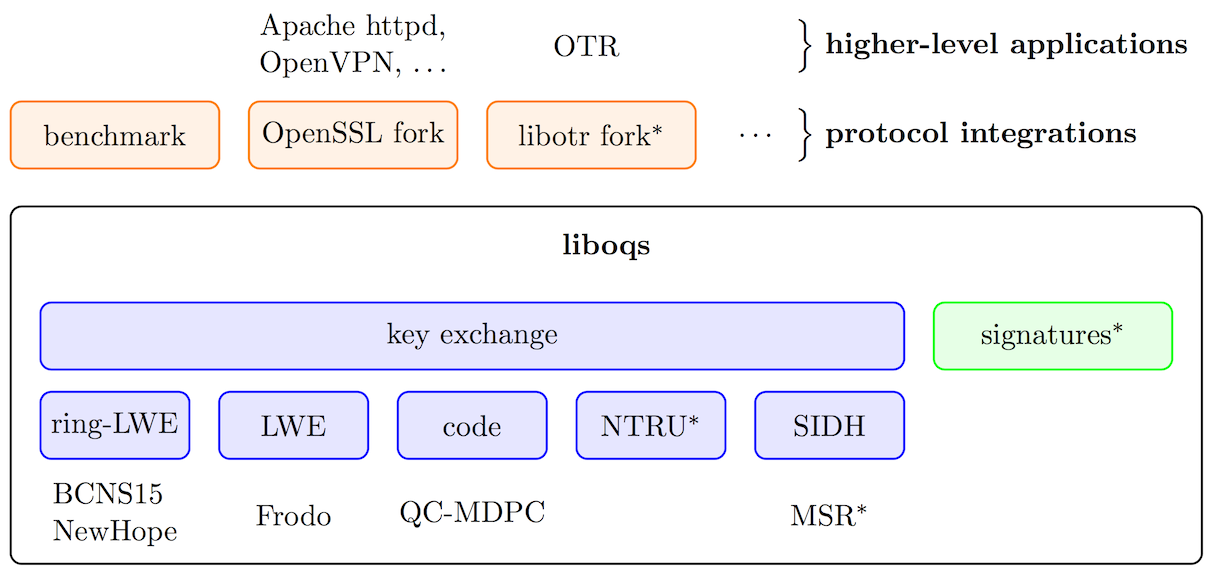
Douglas Stebila
Post-quantum key exchange for the Internet and the Open Quantum Safe project
Abstract
Designing public key cryptosystems that resist attacks by quantum computers is an important area of current cryptographic research and standardization. To retain confidentiality of today's communications against future quantum computers, applications and protocols must begin exploring the use of quantum-resistant key exchange and encryption. In this paper, we explore post-quantum cryptography in general and key exchange specifically. We review two protocols for quantum-resistant key exchange based on lattice problems: BCNS15, based on the ring learning with errors problem, and Frodo, based on the learning with errors problem. We discuss their security and performance characteristics, both on their own and in the context of the Transport Layer Security (TLS) protocol. We introduce the Open Quantum Safe project, an open-source software project for prototyping quantum-resistant cryptography, which includes liboqs, a C library of quantum-resistant algorithms, and our integrations of liboqs into popular open-source applications and protocols, including the widely used OpenSSL library.
Keywords: post-quantum cryptography, key exchange, implementation, SSL/TLS
Reference
Douglas Stebila, Michele Mosca. Post-quantum key exchange for the Internet and the Open Quantum Safe project. In Roberto Avanzi, Howard Heys, editors, Selected Areas in Cryptography (SAC) 2016, LNCS, vol. 10532, pp. 1--24. Springer, October 2017. Based on the Stafford Tavares Invited Lecture at Selected Areas in Cryptography (SAC) 2016 by D. Stebila. © Springer.
Download
Code
Presentations
- 2017-10-04: Global Risk Institute Summit 2017. (PDF slides)
- 2017-09-18: QCrypt 2017, University of Cambridge, UK. (PDF slides)
- 2017-04-30: TLS:DIV workshop (collocated with EuroS&P / Eurocrypt 2017). (PDF slides)
- 2016-11-18: Department of Mathematics and Statistics, McMaster University, Hamilton, Ontario, Canada. (PDF slides)
- 2016-11-14: Institute for Quantum Computing, University of Waterloo, Waterloo, Ontario, Canada. (PDF slides)
- 2016-08-12: Selected Areas in Cryptography (SAC) 2016, St. John's, Newfoundland, Canada. Stafford Tavares invited lecture (PDF slides)
Media
- 2021-03-20: The Nikkei: Communication in the quantum era (量子時代の通信、安全競う 米ITがソフト共同開発).
BibTeX
Funding
This research was supported by:- Australian Research Council (ARC) Discovery Project grant DP130104304
- Natural Sciences and Engineering Research Council of Canada (NSERC) Discovery grant RGPIN-2016-05146
- NSERC Discovery Accelerator Supplement grant RGPIN-2016-05146
- NSERC
- CFI
- ORF
- IQC and the Perimeter Institute are supported in part by the Government of Canada and the Province of Ontario
